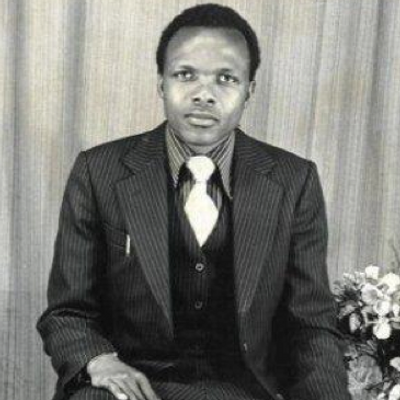
I discovered a new Saint recently, one of our ancient witnesses to the Faith: the martyr St Stephen the Younger. Stephen was born in Constantinople, modern Istanbul, possibly around the 11th August 715 . His father was a craftsman, Gregory, and his mother was Anna, he was the youngest in the family having two older sisters. Baptised on Holy Saturday 716 he was not destined to follow his father's craft, but rather discerned a call to consecrate his life to God and the service of the Church. Respecting his decision his parents allowed him enter a monastery in Bithynia when he turned sixteen. A number of years later his father died, and having come home for the funeral, he returned to the monastery bringing his widowed mother and sister with him so he could care for them. The following year the abbot of the monastery died and Stephen was elected the successor. After twelve years serving his community as abbot, he resigned his office and retired to a remote place to embrace the life of a hermit.
However, the peace of the eremetical life would not last long. In 754 a council at Hieria condemned the use of images in Christianity (Iconoclasm), a position which was contrary to orthodox Christian faith. This council had been called by the emperor Constantine V who had embraced the Iconoclast heresy and he sought to impose it upon the whole Church. The Pope and many of the bishops of East and West rejected the rulings of the council, and though those who participated in it considered it an Ecumenical Council, it was never regarded as anything other than a mock synod. Stephen, like many others, refused to accept the decisions of the council. However while he was left in relative peace for a few years, in 760 he came to the attention of the iconoclasts and they meant to convert him to their position; however Stephen refused: he was not for abandoning the orthodox* position on the veneration of images.
Given his being renowned for holiness, the iconoclasts realised that they had to seriously damage Stephen's reputation to make him crack. So they made allegations of sexual impropriety against him, a sure fire way of undermining his position. He was accused of committing incest with his mother and, then as now, some believed it, others didn't, and many wondered: could there be smoke without fire? He was also accused of transgressing the laws of the emperor by forcing the emperor's favourite, Gregory Synkletos, to be tonsured - admitting him into the clerical state against his will. Though his reputation was now destroyed, Stephen continued to hold firm.
Failing to break him by accusation, Constantine had him arrested and confined to an Iconoclast monastery in Chrysopolis, after interrogations and ill treatment he maintained the orthodox position and so was exiled to the island of Prokonnesos to see if the deprivations there would break him: they didn't. After two years he was brought back to Constantinople to be questioned by the emperor himself. And this was where Stephen shone.
The emperor demanded that he renounce the orthodox position: Stephen refused. An icon of the Lord was then produced and thrown on the ground - the emperor demanded that Stephen tread on it telling the monk that treading on an image of Christ was not the same thing as treading on Christ. Stephen put his hand on his pocket and took out a coin which bore on one side the image of the emperor. Stephen asked the emperor what would happen if someone were to tread on this image? The emperor was indignant, who could consider such a thing, it would be an insult to the emperor! Well then, likewise, Stephen responded, should not respect be shown to icons of Christ?
The emperor could not argue with this logic and so resorted to violence, as corrupt men and women of power often do. Stephen was sent to be scourged and beaten. Still alive after this ordeal, he was dragged through the streets of the city until he was dead. He is the most prominent martyr under Iconoclasm.
Constantine and his fellow Iconoclasts did not think there was anything wrong in dishonouring images of Christ, ultimately these images were nothing, insignificant. Yet as St Stephen demonstrated to trample on an image of Christ is to attack him because the image is representative of him. So too in many other ways. We all know that the oppression of peoples is akin to trampling on Christ, since we offend those he has redeemed, those created in the image and likeness of God, the ones who are close to his Heart.
But then there is also the issue of Christ teachings: what Christ taught reflects him since it is his word; we could say then that the teachings of Christ are his image since they are the means through which we can be ttransfomed into closer images of him. And what about those who dismiss or undermine these teachings, say that they are no longer relevant or need to be updated, or misinterpret them, are they not also trampling on the image of Christ? If Christ says one thing, but we say another, or live and act in a way that is contrary to what he says, are we not being iconoclastic? And if ministers of the Church embrace and promote measures that are contrary to Christ's teaching but deem their measures more merciful, are they not saying they are more merciful that Christ and so trample on Christ himself as on his image?

Mosaic of St Stephen the Younger
* When I speak of orthodox here I do not mean the Orthodox Church, but rather the position of "right teaching", adherence to the authentic teachings of Christ and his Church.

